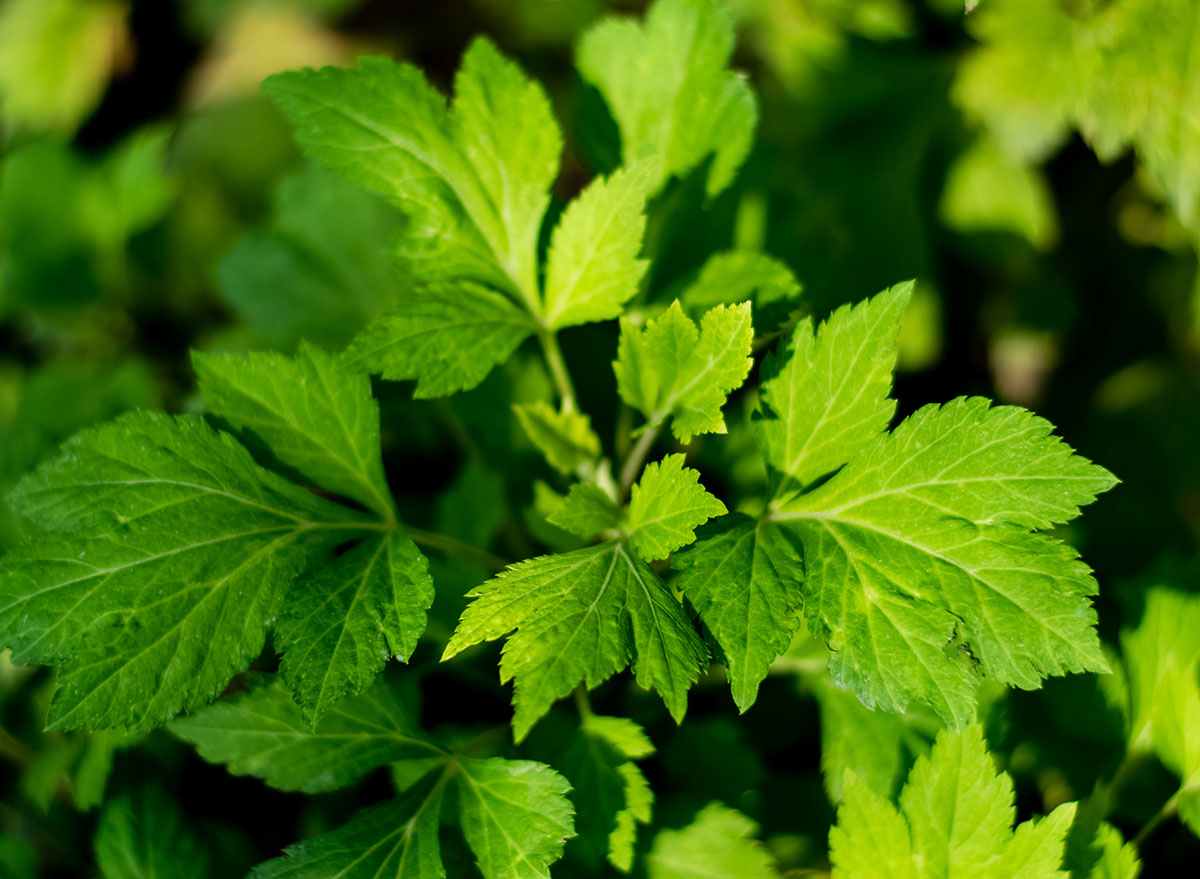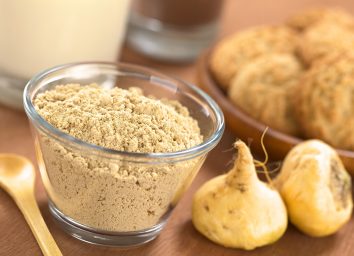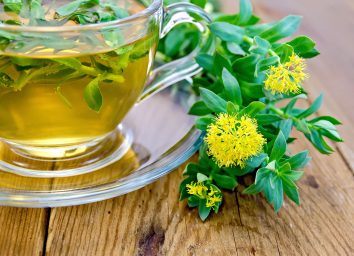Mugwort: Here’s Everything To Know About the Ancient Herb

Mugwort may sound like a J.K. Rowling invention in the Harry Potter realm, but it’s actually an ancient superherb. Here, we’re breaking down what mugwort is, the health benefits it may provide, and whether or not it should be incorporated into your wellness routine.
What is mugwort?
Grown in Europe, North America, and Asia, you’ve likely seen mugwort and mistaken the leafy plant for a weed. According to Jonathan Valdez, R.D.N., owner of Genki Nutrition and spokesperson for the New York State Academy of Nutrition and Dietetics, the leaves and stems of the plant can be used in cooking, or dried and made into herbal supplements.
You can find mugwort in specialty health food stores as a liquid extract, tea, tincture, or capsule—though it may be labeled as Felon herb, St. John’s herb, Chrysanthemum weed, or artemisia instead.
What are the health benefits of mugwort?
Kerry Boyle MS, LAc, licensed acupuncturist with Acupuncture in Vermont, says that mugwort is mainly used in a technique called moxibustion. “Moxibustion involves burning the herb over a specific part of the body to help nourish and bring warmth or dryness to the body,” she says.
In traditional Chinese medicine, mugwort moxibustion has been used for 3,000 years to help turn breech babies. “The thought is that this helps the baby relax enough to turn around into the desired positions during birth,” she says. A 2012 review published in the Cochrane Database of Systematic Reviews suggests that when combined with acupuncture, this can be effective.
Mugwort can also be steeped into a tea and taken to support the digestive and reproductive systems. The herb, according to Valdez, is thought to help relax the uterus, and therefore induce a late menstrual cycle and relieve cramps. And “because the herb tastes bitter, it is believed to stimulate gastric juice and bile secretion, which is why herbalists sometimes use it to treat gas, diarrhea, constipation, and vomiting,” he explains.
Mugwort has also been used in combination with other herbs for psychological concerns like depression, insomnia, and anxiety, says registered aromatherapist and licensed massage therapist Kathy Sadowski, MS. But it’s worth noting that research on the topic is limited, and a 2018 review on the best herbal medicines for depression and anxiety published in Phytotherapy Research did not assess mugwort’s mental health benefits.
How to use mugwort
As the above suggests, there are numerous ways to take mugwort, so how you take it depends on why you’re taking it, says Boyle. “Some may use it as moxibustion, some may take it as tea, rub it on their body, or use it in cooking as a substitute for other strong aromatics such as cilantro or parsley,” she says.
There is no general recommendation on dosing because, as Valdez says, “there’s not enough scientific evidence to determine an appropriate range of doses.” That’s why he and Boyle recommend working with an herbalist, naturopath, or traditional Chinese medicine practitioner to determine the best dose and form for you.
Potential side effects of taking mugwort
Valdez warns that nobody should take mugwort without the supervision of a healthcare provider—especially people who are pregnant. He says that the very mechanism that may make the herb beneficial for breech babies can be detrimental to women earlier in their pregnancy. “Mugwort could cause a miscarriage because it’s thought to encourage menstruation.”
Mugwort is also a common allergen. Individuals who are allergic to other members of the Asteraceae/Compositae plant family—such as ragweed, chrysanthemums, marigolds, daisies, and many other herbs—and people allergic to birch, celery, or wild carrot may experience allergic reactions to mugwort, says Valdez. The same goes for those who are allergic to things such as white mustard, honey, royal jelly, hazelnut, olive, latex, peach, kiwi, and sage. So, if you’re allergic to any of the plants listed above, or often have negative immune responses to new foods, mugwort is probably not for you.
“If you take mugwort and experience wheezing, coughing, dizziness that does not go away, swelling or constriction of the throat, or difficulty breathing, that’s a sign of an allergic reaction, and you should seek immediate emergency medical care,” says Valdez.
Bottom line: Should you take mugwort?
Wellness experts agree: Without the directive of an herbalist, acupuncturist, or health expert, you shouldn’t take mugwort. As Sadowski says, “There are many other herbs that have been shown to have therapeutic benefits in scientific studies, and also have less potential side effects than mugwort.” She notes that these other herbs include adaptogens like ashwagandha, maca root, and rhodiola rosea.
If you do get the green light to try mugwort, Boyle recommends opting for an organic product or product that has been certified by a reliable third-party source.








